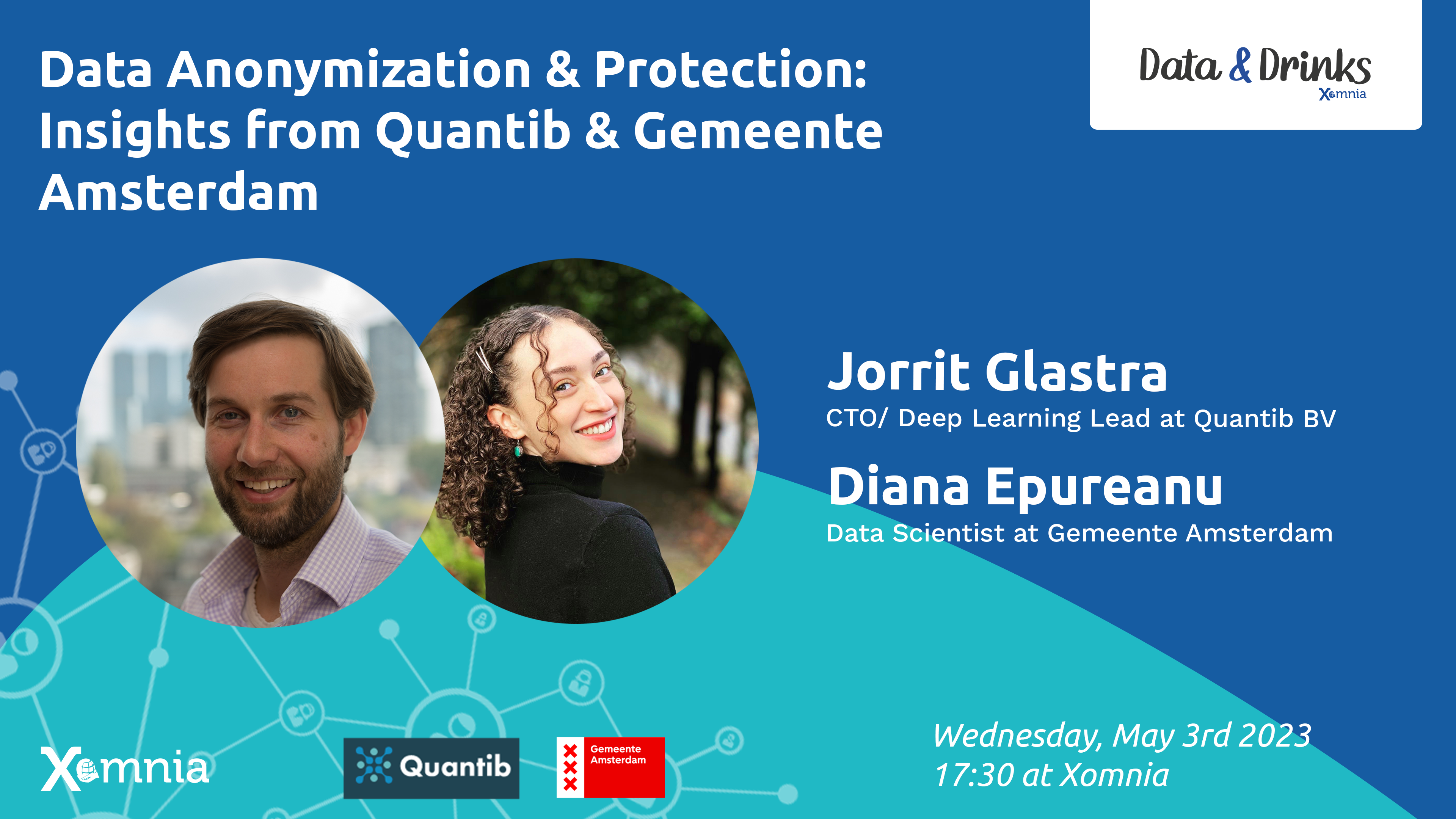Due to sensitive information, we were unable to record the presentation.

Unfortunately, this session was not recorded due to sensitive information
Details
Welcome to May's edition of Data & Drinks monthly event, which focuses on how two vital sectors with advanced data & AI applications ensure privacy and anonymization. Join us on Wednesday, May 3rd at 17:30 at Xomnia's HQ to attend two interesting talks about this topic from Quantib and The City of Amsterdam.
Our first speaker is Jorrit Glastra, Chief Technology Officer at Quantib, who will deliver a talk titled "Building radiology AI using medical data - privacy, de-identification, federation and alternatives". Our second speaker is Diana Epureanu, Data Scientist at Gemeente Amsterdam. She will deliver a talk titled: "Fair Detection: Human and License Plate Anonymization in Public Spaces".
The event includes dinner, drinks and a lot of networking opportunities with data professionals from Amsterdam and beyond.
Summary of talks:
Talk #1: Building radiology AI using medical data - privacy, de-identification, federation and alternatives
Quantib is a Rotterdam-based company that provides radiologists with fast and accurate AI software to enable them to detect the smallest changes in the human body.
There are several possible approaches to use medical data in developing AI applications. Some are focused on distributed or federated training, while others require thorough de-identification before centralization. Jorrit will cover how Quantib tackles some of the challenges faced when doing this for medical imaging data and associated metadata at scale.
Talk #2: Fair Detection: Human and License Plate Anonymization in Public Spaces
This talk discusses fair object detection in public spaces, focusing on human and license plate recognition. While images from public spaces can offer useful information, they also contain sensitive data that needs to be properly detected and blurred. But how can we ensure that this detection is done in a fair and unbiased way? We discuss Gemeente Amsterdam's approach and the challenges it faced along the way.
About the speakers:
- Jorrit Glastra: Jorrit has extensive experience in developing and clearing medical device software, including algorithm development on CT, MRI, and conventional x-ray. He trained as a physicist and worked on data-driven models to support decisions, initially working internationally for Shell. After refocusing his career on applying AI in radiology to improve patient outcomes, he currently serves as CTO for Quantib (NL) and Deep Health (USA), both part of RadNet Inc.
- Diana Epureanu: At Gemeente Amsterdam, Diana works as a data scientist in the Computer Vision team, where she is involved in the development of object detection models and automated data pipelines for various projects. Her work revolves around processing image data from public spaces. She is passionate about creating non-biased algorithms and promoting responsible AI.

